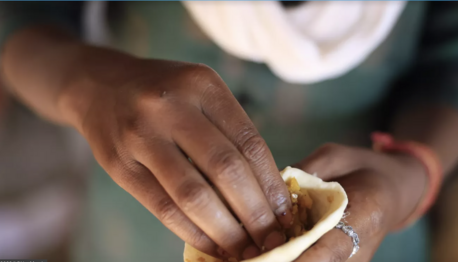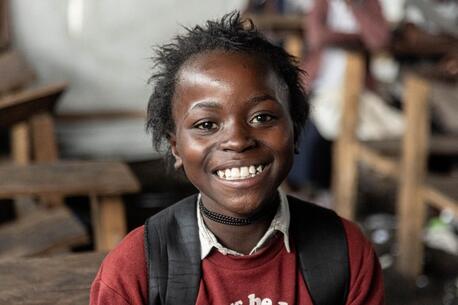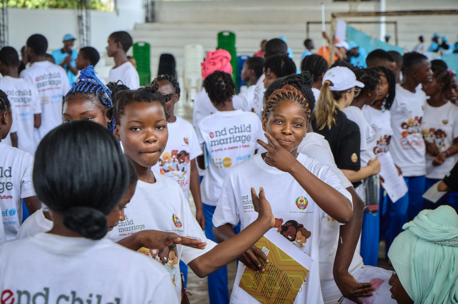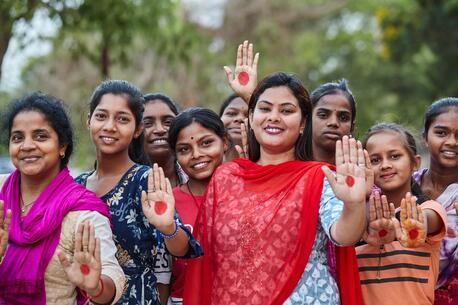
We Deserve Better: How UNICEF Is Strengthening Social Protection for Women and Girls
Barriers like poverty, underrepresentation and disenfranchisement disproportionately impact women and girls across the globe. While social protection measures have the potential to positively impact the female population, they often fall short. UNICEF has launched a strategic initiative to address this issue and help ensure all women and girls are represented.
Social protection measures are failing women and girls worldwide
Social protection is a universal human right secured through a set of public and private systems, policies and programs that are designed to protect individuals against the economic and social vulnerabilities that lead to poverty and deprivation.
And yet these measures often fall short of addressing the specific needs and exclusion that women and girls experience.
Roughly 333 million children — 1 in 6 worldwide — live in extreme poverty today, a reality that disproportionately impacts women and girls. Statistics show a 25 percent greater likelihood of poverty among females vs. males, a figure that climbs to 50 percent for female-headed households.
Women and girls also suffer higher rates of gender-based violence. Nearly a third of all females aged 15 and older report experiencing physical and/or sexual violence from a partner.
Women and girls, especially those living in poverty, are also subject to elevated risks of child marriage and early pregnancy. Each year, an estimated 12 million girls under age 18 become brides. An estimated 640 million women alive today were married in childhood.
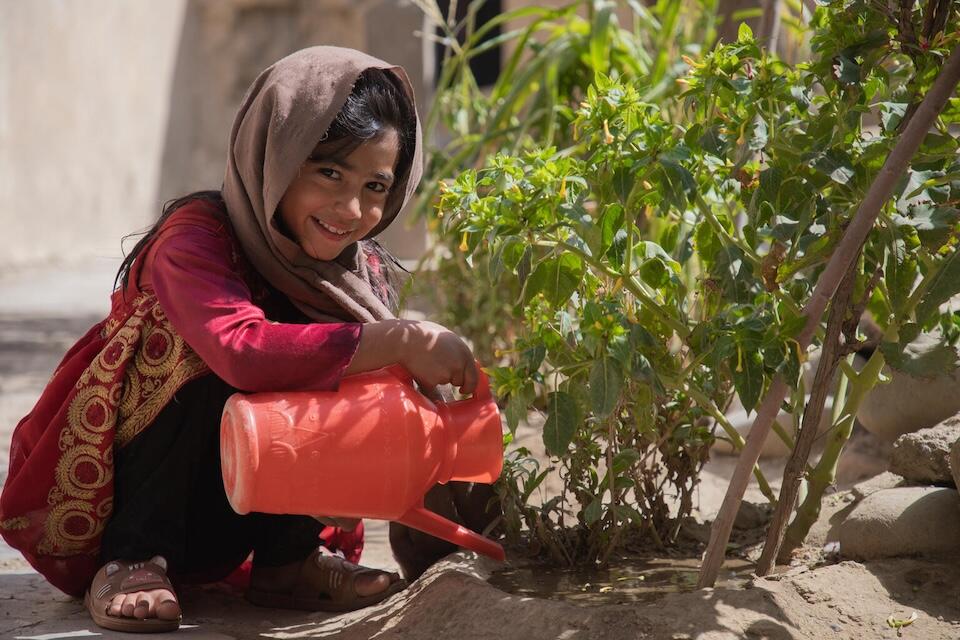
Harmful social and gender norms are derailing the economic futures of women and girls across the world. Globally, girls invest 160 million more hours each day on unpaid care and domestic work than boys. This limits the time women and girls have for education, leading to a lag of in women’s participation in the labor force of 27 percent compared to men.
These challenges are compounded by intersecting forms of discrimination, including race, ethnicity, sexual orientation, geography, disability, migration status and more. Women and girls are also disproportionately impacted by climate change and humanitarian crises — yet only 2 percent of national climate change strategies specifically mention girls.
And while women and girls are often at the forefront of advocacy movements, they are frequently left out of the conversations that follow.
“Women and girls are often systematically excluded from decision and policymaking spaces that influence the development of social protection systems," notes UNICEF Sierra Leone Chief of Social Policy Mona Korsgard.
UNICEF's ‘We Deserve Better’ initiative aims to make social protection gender inclusive
In response to these challenges, UNICEF's Social Policy and Social Protection team conducted a series of consultations with feminist, women- and girl-led organizations in different countries to explore their experiences and participation in designing and implementing social protection systems.
These consultations were the first phase of We Deserve Better, a new initiative aiming to elevate the experiences of women and girls, infuse these findings into policy recommendations and secure concrete policy actions from governments that respond to the needs of women and girls for more inclusive, gender-responsive and transformative social protection. Read the We Deserve Better report.
Social protection has the potential to address the challenges and barriers that disproportionately affect women and girls, but only if designed and delivered in an inclusive way that encourages and welcomes participation from the female population. By empowering women and girls to shape these processes from the start, effective and sustainable social protection systems can be created to promote gender equality and equitably advance human development as a right.
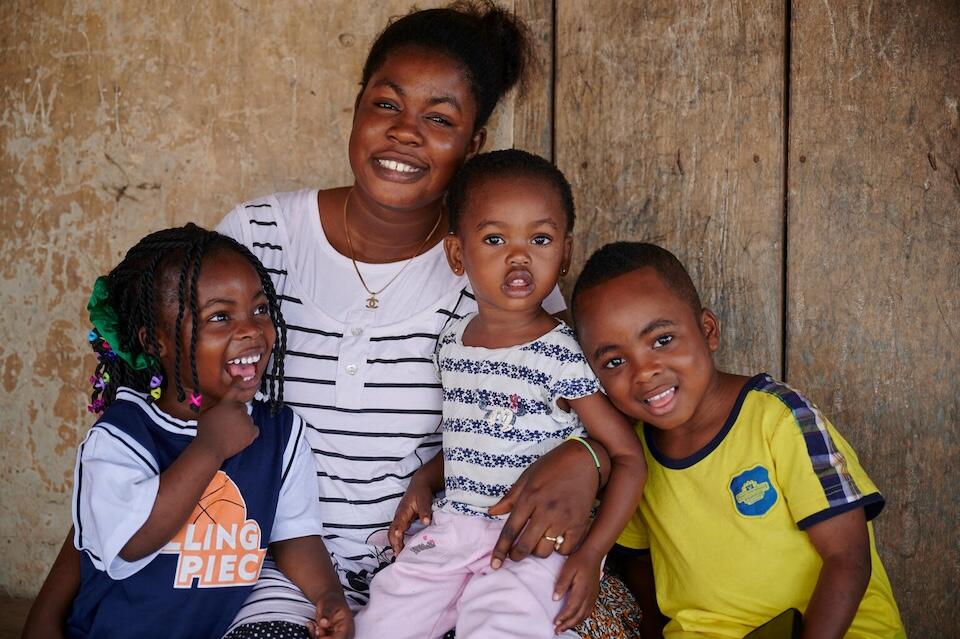
Programs that provide cash assistance and improved access to social services can help reduce poverty and the use of negative and sometimes violent coping mechanisms that are so harmful to girls.
When designed well, these programs can provide economic security for girls and their families, increase female school enrollment, reduce unpaid care labor and mitigate risks of domestic violence, transactional sex and child marriage. Implementing family-friendly policies like child benefits, childcare services and paid parental leave can have a positive impact on female participation in the labor market as well as girls’ participation in schools by shifting domestic labor.
UNICEF is working in over 150 countries on strengthening social protection systems to ensure equitable access. A critical part of this work is ensuring social programs and systems are more inclusive and responsive to the needs of women and girls. In 2023, 129 countries where UNICEF works reported integrating gender-specific objectives into national and regional social protection systems — 100 more countries than in 2019.
In the first phase of the We Deserve Better initiative, women and girls from over 30 countries discussed the potential benefits and challenges in leveraging social protection systems, programs and policies to address gender issues related to care and support, economic opportunities, ending violence, political engagement of women and youth, discriminatory social norms, and climate change.
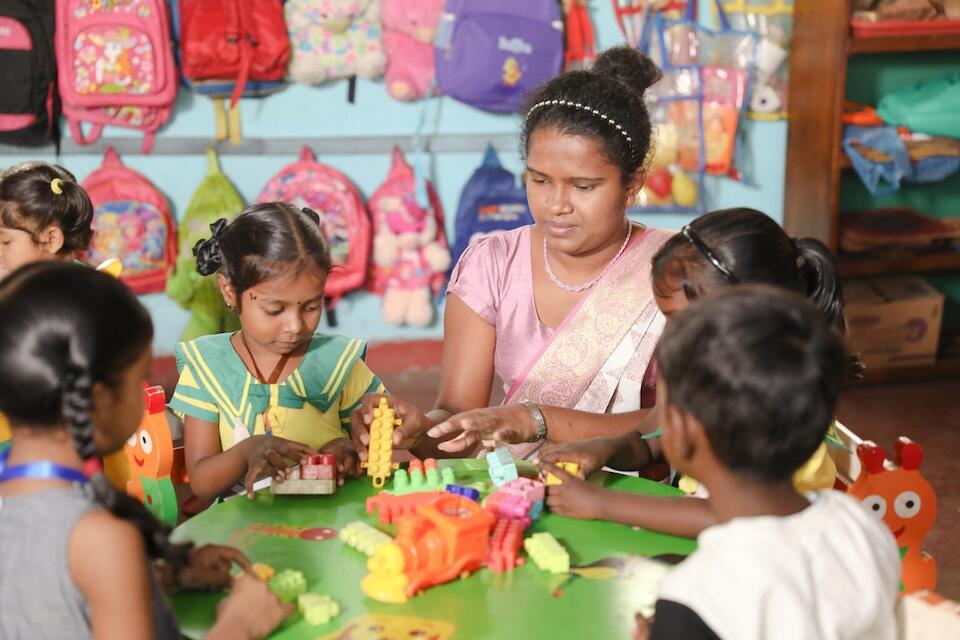
These consultations and conversations resulted in a set of recommendations for governments, development partners and civil society advocates to make social protection policymaking more collaborative and social protection systems ultimately more gender-responsive, even transformative.
Their recommendations include:
- engaging men and boys
- providing effective awareness campaigns and communications
- recognizing care and support work through social protection
- providing income for families and paths to jobs, skills and training
- providing social protection to prevent and respond to violence
- strengthening social protection for youth
- building resilience to climate change through social protection
Through a blend of long-term investments in the creation of social protection systems as well as short-term adjustments in response to crises, policymakers can:
- tackle women’s poverty through social assistance
- enhance women’s resilience and their capacity to manage crises, including through social insurance and livelihood diversification
- offer sustainable routes out of poverty for women by better integrating social protection, public services and labor market initiatives
- address the fundamental causes of poverty, inequality and marginalization, such as gender-based violence, women’s limited control over economic resources and their disproportionate burden of unpaid care and domestic work
Building on phase one, the second phase of the We Deserve Better Initiative aims to provide technical assistance and policy advising to support policymakers in implementing the recommendations through concrete roadmaps and program reforms designed with women and girls, uplifting marginalized voices.
We are committed to work for and with girls, adolescents and women to maximize the impact of social protection and realize its potential in furthering gender equality. — UNICEF Director of Social Policy and Social Protection Natalia Winder-Rossi
“We believe that women and girls demand more and deserve more, going beyond consultation or acknowledgement or sympathy," says UNICEF Director of Social Policy and Social Protection Natalia Winder-Rossi. "They demand action and tangible resources from policymakers, international organizations and governments. We are committed to work for and with girls, adolescents and women to maximize the impact of social protection and realize its potential in furthering gender equality."
To learn more, read We Deserve Better: Unlocking the Power of Social Protection for Women and Girls
HOW TO HELP
There are many ways to make a difference
War, famine, poverty, natural disasters — threats to the world's children keep coming. But UNICEF won't stop working to keep children healthy and safe.
UNICEF works in over 190 countries and territories — more places than any other children's organization. UNICEF has the world's largest humanitarian warehouse and, when disaster strikes, can get supplies almost anywhere within 72 hours. Constantly innovating, always advocating for a better world for children, UNICEF works to ensure that every child can grow up healthy, educated, protected and respected.
Would you like to help give all children the opportunity to reach their full potential? There are many ways to get involved.



